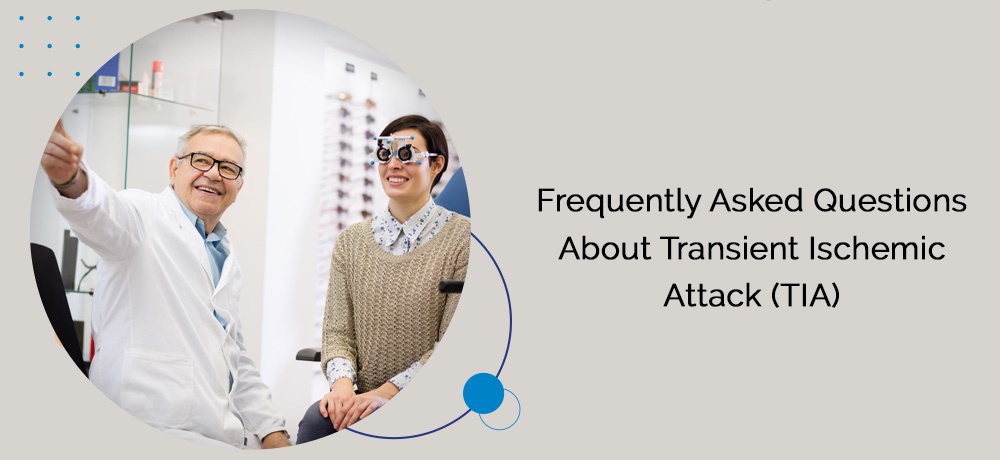Frequently Asked Questions About Transient Ischemic Attack (TIA)

While most people are aware of eye diseases such as Glaucoma, Cataract, and Diabetic Retinopathy, few people are aware of transient ischemic attack (TIA), which is the most common cause of temporary vision loss.
Therefore, Doctors Eyecare Wetaskiwin wants to arm you with the most accurate information to help you take the proper precautions. To do this, we’ve answered some of the most frequently asked questions about transient ischemic attack (TIA).
1. What is a transient ischemic attack (TIA)?
TIA, or a “mini-stroke,” tends to occur most often in seniors. A TIA may only last a matter of minutes, but it should not get ignored since it could be a precursor to a more severe heart attack or stroke.
2. What are the risk factors for TIA?
The risk factors for TIA are high blood pressure, high cholesterol, smoking, IV drug use, and cocaine use. It also includes excessive alcohol consumption, use of oral contraceptives, and obesity caused by lack of exercise.
3. What are the symptoms of TIA?
A TIA is a warning sign that a stroke may occur. It is caused by a reduction in blood flow to the brain or eyes for a short period due to a small blood clot. Symptoms of a TIA may include painless loss of vision of one or both eyes, weakness and tingling on one side of the body, difficulty speaking, or vertigo (dizziness).
The symptoms go away when the blood flow returns, usually in a matter of minutes. A TIA will rarely last for more than twenty-four hours. If you have a stroke, the blood flow does not return, and permanent damage occurs in the brain.
4. What are the treatments for TIA?
Patients suffering from a TIA need to see a physician as soon as possible. The physician may order a list of tests, including blood pressure, a complete blood work-up, CT scan, MRI, Doppler ultrasound, or an echocardiogram.
If a vision loss is experienced, an examination by your Doctor of Optometry is vital to rule out any other possible causes of vision loss. Initial treatment of a transient ischemic attack usually involves taking prescribed blood thinners. The long-term treatment of a TIA depends on the cause of the attack.
If you have more questions about transient ischemic attacks, get in touch with the experts at Doctors Eyecare Wetaskiwin.
As the best optometrists in Wetaskiwin, AB, we provide comprehensive eye health services to patients of all ages. It includes routine eye exams, vision tests, eye disease diagnosis, immediate attention for eye emergencies, and complete eye health management.
We serve clients across Wetaskiwin, Millet, Maskwacis, Pigeon Lake, and the surrounding areas.
To learn more about how we can help you, please click here or contact us by clicking here.